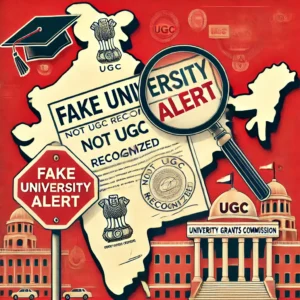Recent Posts:
Monad University Chairman Arrested: Uttar Pradesh STF Unearths...
66views
0likes
-
By EFC Team
- May 28, 2025
Warning Alert: Singhania University Teacher Education Degrees...
509views
17likes
-
By EFC Team
- May 6, 2025











